2014: It was a bad year for…
From journalists to breastfeeding mums - the groups that have experienced a year of loss and disappointment
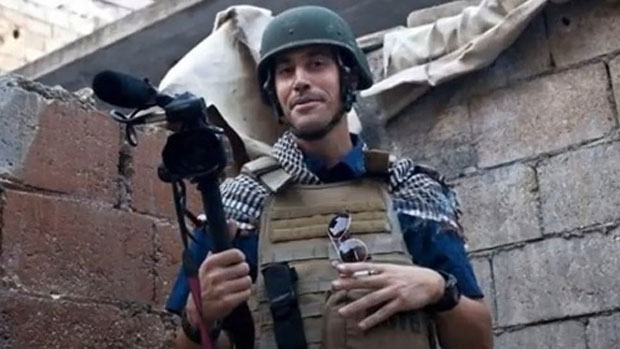
A free daily email with the biggest news stories of the day – and the best features from TheWeek.com
You are now subscribed
Your newsletter sign-up was successful
1. Female celebrities
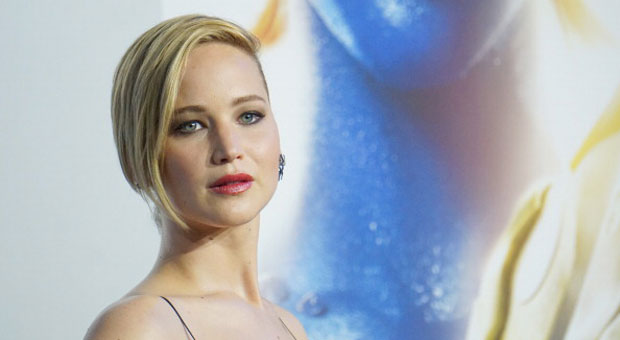
In September, hackers stole and published hundreds of nude photographs from female celebrities, including Jennifer Lawrence, Kirsten Dunst and Ariana Grande. "To those of you looking at photos I took with my husband years ago in the privacy of our home, hope you feel great about yourselves," said actress Mary Elizabeth Winstead.
"The message to women was clear", Jessica Valenti writes in the The Guardian. "Your bodies are ours and, if you resist or get angry at what we do, we'’ll remind you of your place."
The Week
Escape your echo chamber. Get the facts behind the news, plus analysis from multiple perspectives.

Sign up for The Week's Free Newsletters
From our morning news briefing to a weekly Good News Newsletter, get the best of The Week delivered directly to your inbox.
From our morning news briefing to a weekly Good News Newsletter, get the best of The Week delivered directly to your inbox.
2. Unarmed African American males
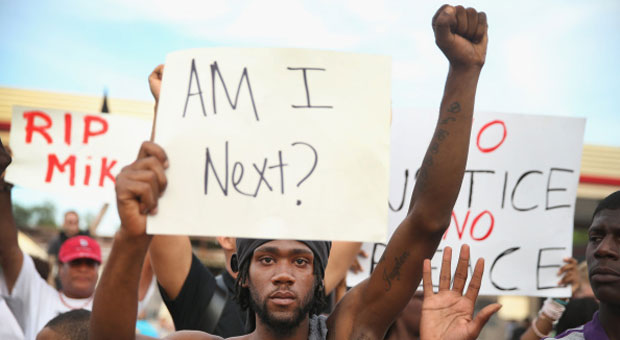
Protests erupted across America following the grand jury decisions not to indict the white police officers responsible for the killing of two unarmed black men in Ferguson, Missouri, and New York.The deaths of Michael Brown and Eric Garner sparked nationwide outrage and have brought the issue of race relations to the forefront of debate in America. "I can't breathe" has become the rallying cry of demonstrations, echoing Garner's last words while being held in a choke-hold by a police officer.
3. Supporters of Scottish independence
A free daily email with the biggest news stories of the day – and the best features from TheWeek.com

Yes campaigners accepted a bitter defeat in September after two million Scots voted against independence. The margin of victory – 55 per cent to 45 per cent – was greater than many of the final opinion polls predicted.
"I'm devastated," one campaigner told the Huffington Post. "I think this was our chance. I feel I will be embarrassed to say I am Scottish in the world. You know, everyone here was singing Flower of Scotland blah, bah, blah – then we voted against independence."
4. Breast-feeding mums
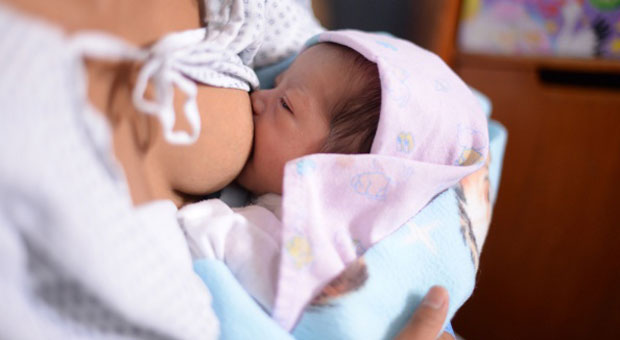
When a waiter in Claridge's hotel in London asked a woman to cover up while breastfeeding her baby, it sparked such a national debate that even Nigel Farage and Jeremy Clarkson chimed in.
Farage backed the hotel's decision to tell the mother to cover up and said women shouldn't be "openly ostentatious" when breastfeeding in public and if they needed to do so, he suggested that they "sit in a corner". Meanwhile Clarkson compared it to urinating and said it should be done in private. Campaigners staged a mass "nurse-in" outside the hotel in protests against the attitudes they say make new mother feel marginalised and ashamed of feeding their children.
5. Journalists
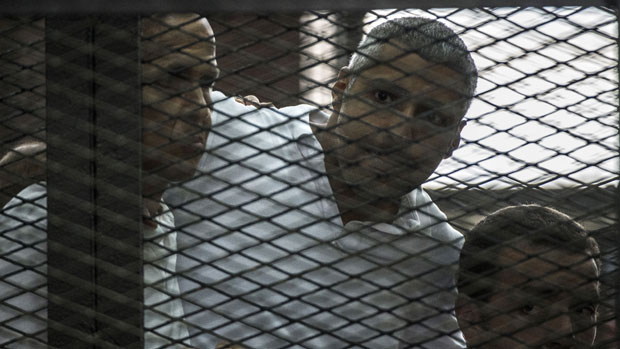
Journalism remains one of the world's most dangerous professions, with reporters facing kidnapping, imprisonment and death in places such as Iraq, Syria and Russia. Islamic State militants have routinely targeted journalists this year, murdering Americans James Foley and Steven Sotloff and a number of local reporters. Sotloff became the 70th journalist to be killed covering the war in Syria.
It has now been almost a year since three Al Jazeera journalists were arrested for "spreading false news" in support of the banned Muslim Brotherhood. Peter Greste, Mohammed Fahmy and Baher Mohammed (above) were sentenced to seven years in prison by a Cairo court in June. Egypt faced global condemnation for the sentence, but the men remain in jail.
6. Immigrants in the UK
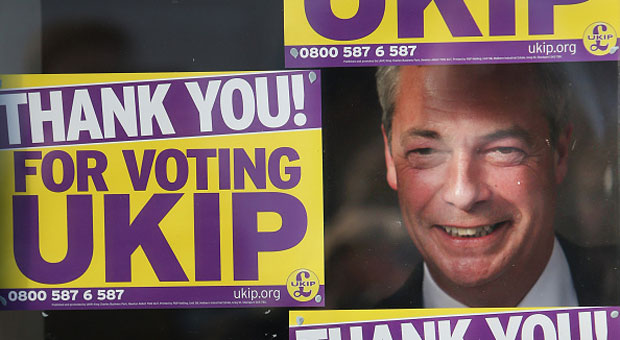
This year, foreigners have been blamed for everything from putting a strain on the NHS to causing traffic delays on the M4. Support for Ukip, which seeks an end to the UK's membership of the UK and a dramatic reduction in immigration, continues to rise. The party has managed to secure two Conservative defections and is predicting several more before next year's general election.
Nevertheless, last month academics calculated that European immigrants actually paid much more in taxes than they received in benefits during the last decade, making a net contribution of £20 billion to the British economy.
7. Celebrity activists
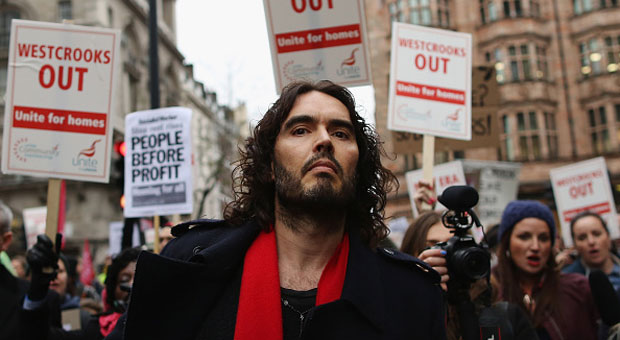
It hasn't been a great year for celeb do-gooders, with the press and the public accusing them of hypocrisy and self-promotion. The new Band Aid single, championed by Bob Geldof to raise funds to help fight Ebola, has come under fire for its "patronising and cringeworthy" message.
Russell Brand, the comedian turned anti-capitalist, activist has managed to upset large swathes of the British population, while The Guardian's Polly Toybe argues that "Brand’s 'revolution' is vain and destructive, peddling unreal, hip alternatives."
8. Barbies
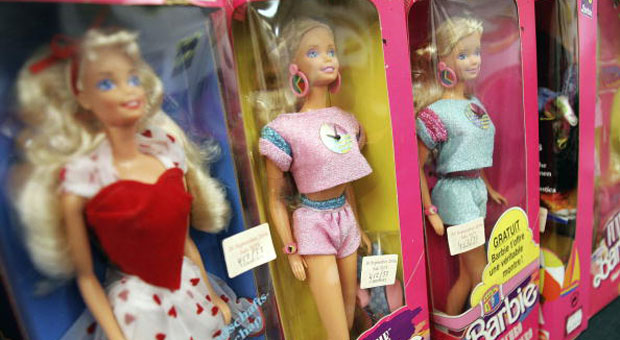
For almost 70 years, Barbie has been one of the most popular toys on the market, but worldwide sales of the doll have plummeted this year. Mattel saw a 21 per cent decline in the third quarter, with Lego swiftly overtaking it as the best-selling toy on the market.
The 55-year old doll has long come under fire for its unrealistic representation of women and the message that it sends to young girls. This year, campaigners welcomed the launch of the "anti-Barbie" with the marketing slogan "average is beautiful" and complete with stick-on blemishes and stretchmarks.
9. Giraffes
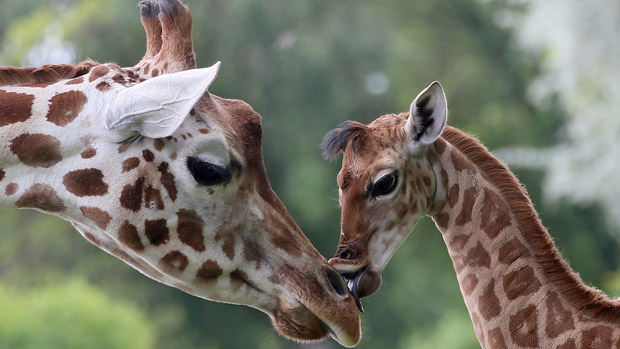
Conservationists have warned that some species of giraffes face extinction due to habitat destruction and poaching for its meat. The giraffe plays a key part in the ecosystem and is one of Africa's most iconic species, so "to lose them simply because we weren't paying attention would be tragic," said Kathleen Garrigan from The African Wildlife Foundation.
In February, Copenhagen Zoo killed Marius the giraffe, ignoring a global petition. Zoo officials said he was euthanised in order to prevent inbreeding, but the move left animal rights activists and some zoo-goers devastated.
10. Women in Saudi Arabia
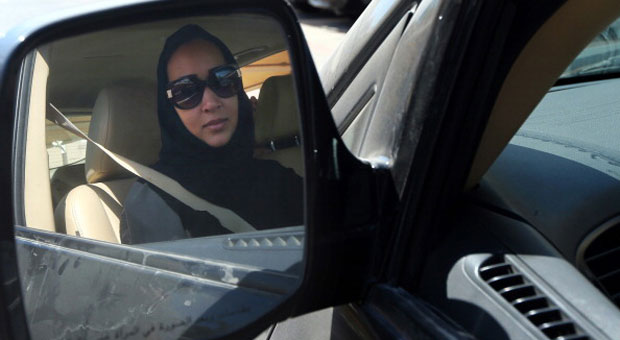
This month, two Saudi Arabian female activists were arrested after defying the country's ban on women driving, and single women have also been barred from entering some restaurants in the country because of an increase in "shocking" behaviour, such as flirting. These bans are just two of the many restrictions placed on women's lives in the conservative Muslim kingdom.
-
 Why is the Trump administration talking about ‘Western civilization’?
Why is the Trump administration talking about ‘Western civilization’?Talking Points Rubio says Europe, US bonded by religion and ancestry
-
 Quentin Deranque: a student’s death energizes the French far right
Quentin Deranque: a student’s death energizes the French far rightIN THE SPOTLIGHT Reactions to the violent killing of an ultraconservative activist offer a glimpse at the culture wars roiling France ahead of next year’s elections
-
 Secured vs. unsecured loans: how do they differ and which is better?
Secured vs. unsecured loans: how do they differ and which is better?the explainer They are distinguished by the level of risk and the inclusion of collateral
-
 Epstein files topple law CEO, roil UK government
Epstein files topple law CEO, roil UK governmentSpeed Read Peter Mandelson, Britain’s former ambassador to the US, is caught up in the scandal
-
 Iran and US prepare to meet after skirmishes
Iran and US prepare to meet after skirmishesSpeed Read The incident comes amid heightened tensions in the Middle East
-
 Israel retrieves final hostage’s body from Gaza
Israel retrieves final hostage’s body from GazaSpeed Read The 24-year-old police officer was killed during the initial Hamas attack
-
 China’s Xi targets top general in growing purge
China’s Xi targets top general in growing purgeSpeed Read Zhang Youxia is being investigated over ‘grave violations’ of the law
-
 Panama and Canada are negotiating over a crucial copper mine
Panama and Canada are negotiating over a crucial copper mineIn the Spotlight Panama is set to make a final decision on the mine this summer
-
 Why Greenland’s natural resources are nearly impossible to mine
Why Greenland’s natural resources are nearly impossible to mineThe Explainer The country’s natural landscape makes the task extremely difficult
-
 Iran cuts internet as protests escalate
Iran cuts internet as protests escalateSpeed Reada Government buildings across the country have been set on fire
-
 US nabs ‘shadow’ tanker claimed by Russia
US nabs ‘shadow’ tanker claimed by RussiaSpeed Read The ship was one of two vessels seized by the US military